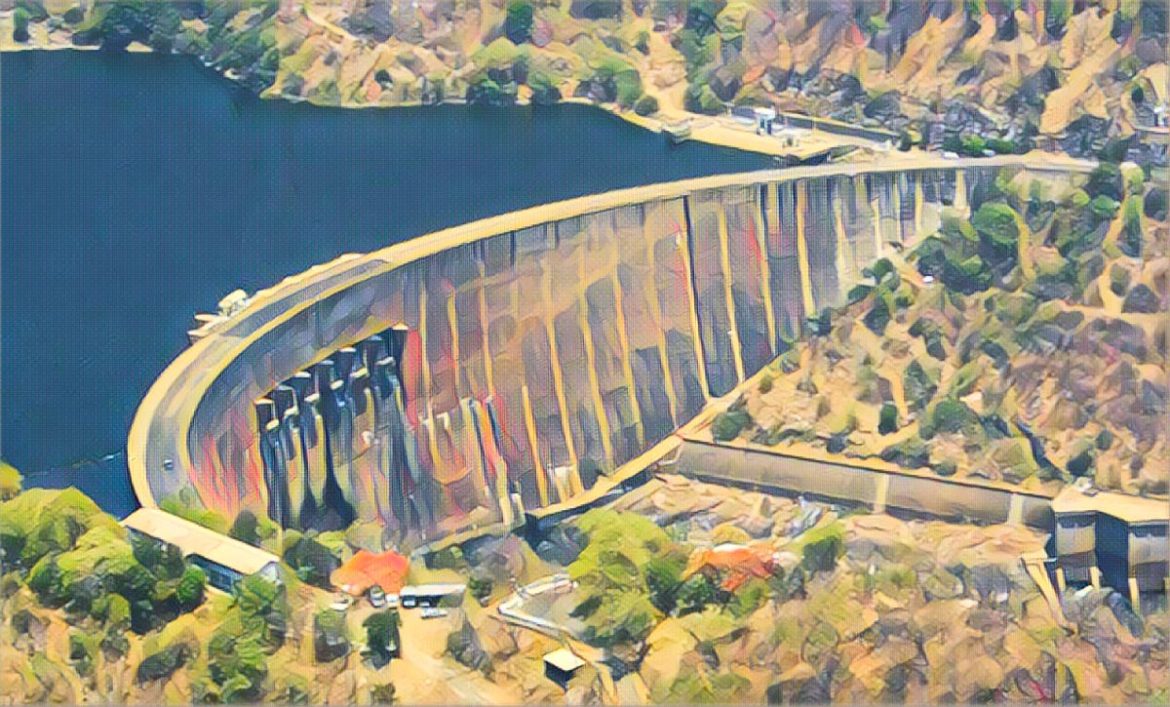In a concerning development, backers of the Kariba Dam Rehabilitation Programme (KDRP) have voiced their distress over extensive delays in the project’s completion, now in its seventh year, far exceeding the initially projected three-year timeline.
The KDRP, valued at $294 million, encompasses the vital overhaul of the Kariba Dam infrastructure, involving the reshaping of the plunge pool and rehabilitation of the spillway. The plunge pool’s reconstruction aims to curtail erosion of the dam wall structure, while the refurbishment of spillway gates is vital to prevent any potential jamming that could lead to dam failure and catastrophic consequences for lives, assets, and electricity supply.
The European Union, World Bank, African Development Bank (AfDB), and the Swedish government are among the principal funders of this crucial project. Speaking during a high-level inspection of the project, Eneida Fernandez, World Bank country representative for Zimbabwe, acknowledged the challenges faced due to factors such as the COVID-19 pandemic, complex geological issues, supply disruptions, and prolonged procurement processes. She noted, however, that substantial progress had been made, with over 80% completion of the plunge pool.
While commending the achieved milestone, Fernandez underscored concerns about potential delays in the spillway’s rehabilitation and emphasized the need for concentrated efforts to expedite the remaining tasks. She urged all involved parties to address key issues affecting the spillway works promptly, highlighting the importance of safeguarding regional energy security. Fernandez also reassured that the financiers remain committed to supporting Zimbabwe and Zambia in overcoming challenges that have surfaced during the project.
Energy and Power Development minister Edgar Moyo, officiating at the event, expressed confidence in the project’s stakeholders’ ability to resolve the encountered challenges. Moyo emphasized the commitment of both Zambia and Zimbabwe to ensure the project’s successful completion, recognizing its significance as a crucial source of clean, affordable, and sustainable electricity for the region. Moyo also emphasized the project’s role in enhancing energy security and socio-economic development in both Zimbabwe and Zambia, aligning with their respective national energy policies and development plans. Additionally, he pointed out that the rehabilitation project would extend the dam’s operational life, enabling sustained electricity generation.
The Kariba Dam Rehabilitation Project’s ultimate goal is to extend the dam’s lifespan from 50 to 100 years while benefiting three million people through risk reduction and mitigation, along with sustaining power generation estimated at 10 gigawatts annually. The AfDB and World Bank have contributed $75 million each to the project, with Sweden disbursing $25 million. Despite the delays and challenges, this vital project remains a beacon of hope, offering the promise of enhanced regional energy security and a brighter future for all involved.
Source: [Newsday Zimbabawe]


